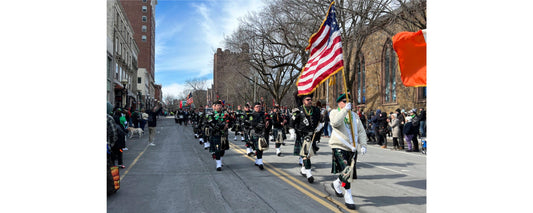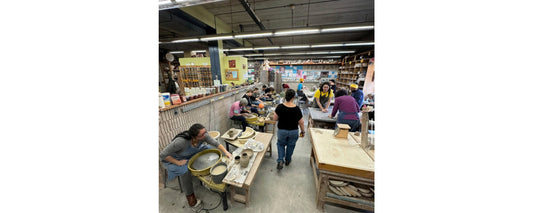As the sound of strings and woodwinds fade on a recent Monday evening inside Temple Emanuel of Greater New Haven, music director Matthew Scinto leans over his stand and says, “We need that same sort of warmth. It can’t be dark-sounding.” The members of the Civic Orchestra of New Haven nod before continuing on, honing their parts for Tchaikovsky’s Fifth Symphony, a difficult piece, many of them agree, but an apropos challenge after the orchestra’s roughly two-year pandemic-forced hiatus.
The Civic Orchestra of New Haven isn’t the professional New Haven Symphony Orchestra, but the roughly 50-piece auditioned ensemble does boast a mix of professional musicians, including some music teachers, and players who could have been. It’s a “very high-level community orchestra, very accomplished,” one member explains, whose numbers include retired medical professionals, a college student, a couple of software engineers and a business attorney who was once the principal trombonist in the Jerusalem Symphony Orchestra and even recorded at Universal Studios for an episode of Knight Rider. Members live in New Haven and surrounding towns, have played in the orchestra from a few months or a few years to as long as 30 years, and one, Art Hovey on the tuba, has been with the group on-and-off for 50.
sponsored by
Scinto, the music director, is also the founder and director of the Cape Cod Chamber Orchestra and has a musical arts doctorate from Boston University, where he twice received the conducting department award for excellence. He drives three and a half hours each Monday from his home in West Yarmouth, MA, to Orange to rehearse with CONH. “I feel it’s my duty to be there as much as I can,” Scinto says. “And after two years of not being able to see everyone, it’s my privilege to be able to work with them again.”
The civic orchestra dates back to 1939, when founding conductor Harry Berman envisioned and created a group that played for enjoyment only. Early years saw the orchestra tackling light classical pieces, works by Gilbert and Sullivan and traditional compositions by Haydn, Mozart, Mendelssohn and Beethoven, according to the group’s website. As the years passed and new conductors took over, soloists and local choruses were added to the programs, as were various composers. Under Christopher James Hisey, music director from 2004 to 2018, the orchestra continued a tradition of holding two concerts each year in the heart of downtown New Haven.
Scinto took the podium just as COVID was about to rear its ugly, spiky head. The orchestra had done its winter 2019 concert at Yale’s Battell Chapel and started rehearsals for 2020 when the world unwound. “We moved everything online and ran some Zoom classes for orchestra members for pretty much an entire year,” Scinto recalls. When the fog began to clear, the orchestra had to find a new place to rehearse and hold its concerts because of new restrictions on the buildings they’d been using. Members secured and started to regroup last fall at Temple Emanuel, and in February the entire orchestra finally reunited there, where they’re now gearing up for their first concert in two and a half years – though with COVID restrictions, the show may look more like a limited, open rehearsal than a full-fledged concert. Details are still in the works.
Despite the changes, for the players, the return to their orchestra seats after such a long break has meant a return to themselves. Laurie Ongley, who plays viola, says, “It’s part of who I am,” a sentiment echoed by cellist Susan Solomon. The community orchestra also allows them to connect with each other. “Everyone needs to really work together to make the product the special thing that it is,” Scinto says. “Every instrument has an equally important role.” Violinist Jerry Anne Dickel adds that playing with the orchestra is “being part of something much greater than any individual.”
Trumpet player Ben Heller says there’s no experience like playing great classical works with other music lovers—“filling a room with sound; listening and moving together.” Within those orchestral pieces lies human emotion, and oboe player Anthony J. Marra says there’s nothing more exciting, challenging and satisfying than playing these greatest creations of the human mind while passing the emotions they evoke to a receptive audience. “Music changes both the world of the musician and the world of the audience, at least for the time of the performance, and for many, after that as well,” he says.
Scinto believes a community orchestra is more important than ever because the pandemic left people starving for the arts. Andrew Martin, who plays the double bass, seems to agree. “The music does help today for sanity; it’s some escape from the madness.”
Civic Orchestra of New Haven
Rehearsing at Temple Emanuel in Orange; now auditioning new members
info@civicorchestraofnewhaven.org
www.civicorchestraofnewhaven.org
Written and photographed by Jill Dion. Image 2 features Matthew Scinto.








